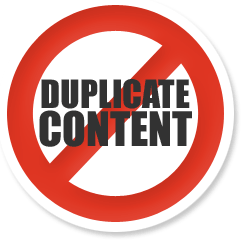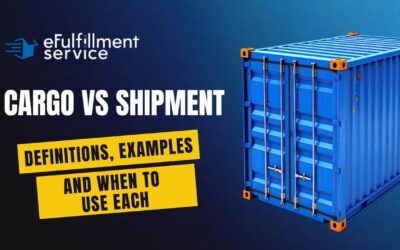
As an online retailer, it’s very tempting to use product descriptions supplied by the manufacturer. And it’s not only tempting, it’s quite common. After all, some retailers have hundreds or thousands of unique products on their website, and it could take months to write a description for each.
Let me start off by saying that I feel your pain. I’ve worked with many retailers that simply don’t have the time or resources to write hundreds or thousands of unique descriptions for their products. But, depending on your situation, it could be something that really needs to move up on your priority list. And here’s why.
Search Engines Hate Duplicate Content
Search engines like Google don’t like it when they see the same product description on hundreds or thousands of websites. These search engines have a tough job. They essentially have to narrow down trillions of web pages in order to figure out which select few will be most beneficial to users like you and me. And as search engine crawl these trillions of web pages, they’re constantly asking themselves, “What makes this website unique, and why should I serve it to my users?”
For any website, getting listed atop organic search results is tough. For retailers, it can often be even more challenging simply given the nature of the website, which is to sell products. Your users are there to buy, meaning they don’t necessarily want to see a ton of content, making it more difficult for you, as an online retailer, to convey to the search engines how your website different.
This is the reason why having unique product descriptions is so important. They typically make up the majority of content on a retailer’s website, and if that content is the same as numerous other websites, well then you have to put yourself in the search engines shoes: why should they give your site preferential treatment?
Let’s Not Forget About Your Users
It’s not just the search engines that retailers need to think about. The fact that online retailers often sell products that can be purchased on many other websites also makes it important for them to distinguish their brands to their users.
Just as you should ask yourself, “Why would the search engines like my website,” you should do the same from the user’s perspective. And from that perspective, all of your content, including product descriptions, represents an opportunity to put a personality to your brand and differentiate your website, not just in the eyes of the search engines, but also in the eyes of your prospective buyers.
It Doesn’t Change the Fact that I Still Don’t Have Time
As I said, I feel your pain. I know how tedious and time consuming it can be to write unique descriptions for every product on your site. But here’s the thing to remember: it doesn’t have to be done tomorrow. Or the next day. Or this week, or even this month. As long as you set aside a little time each day or each week to chip away at them, you’re making progress.
The other thing to think about is the hierarchy of your website. Search engines typically like your homepage the best. It is usually the most popular page on your site, and the one with the most links pointing toward it. So, start by making sure your homepage has unique content. From there, start tackling the next pages in your site hierarchy, which are typically your top-level category pages. After that, work your way on to product details pages. The product details pages are the ones that Google and the other search engines so frequently ignore because they have duplicate descriptions and very little to no distinguishing factors.
For most online sellers, they sure wouldn’t mind to get a little more traffic from the search engines. And while unique product descriptions by themselves aren’t enough to catapult you to the top of the search engines for all of your desired keywords, they can help from a long-tail keyword standpoint, and as importantly, they’ll help your website as a whole be seen in a better light by both users and search engines.




0 Comments